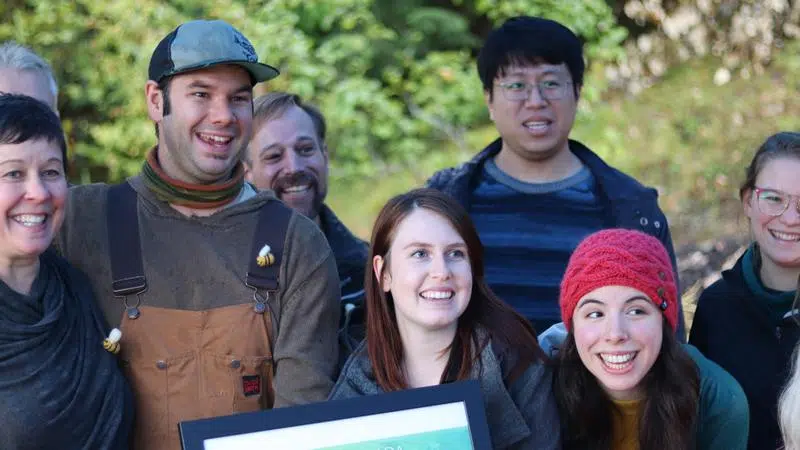
VIU peace garden abuzz with bee achievement
NANAIMO — A small section of Vancouver Island University’s Nanaimo campus is being recognized for its impact on local biodiversity.
VIU is the first “Bee Campus” in B.C., as designated by the organization Bee City Canada. It was earned for student’s work creating a diverse garden space and educating others on the importance of pollinators in the eco-system.
Becoming a Bee Campus centers around the Peace Garden Educational Ecosystem, run by the Master of Community Planning program and the peace garden student club.
Garden programmer Margot Thomaidis told NanaimoNewsNOW the project has come a long way in 12 months.



